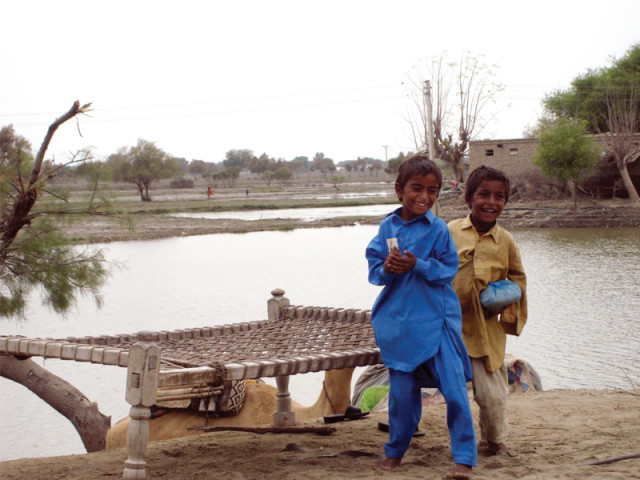Don’t panic about a ‘super flood’, says government adviser
Officials have started consulting with stakeholders.

Don’t panic about a ‘super flood’, says government adviser
While government officials are expecting a flood in Sindh, environment experts didn’t sound an alarmist note at a conference on Monday.
According to environment experts and officials of the meteorological department, there was no chance of a ‘super flood’ in Pakistan, and that hardly five to 15% more rains than the normal monsoon had been predicted this year.
The conference titled ‘Climate change – basic understanding and current issues of Pakistan’ was organised by the Coastal Development Authority of the Sindh government.
“There was 70% more rain than the normal monsoon season in 2010, but now it can enhance to 15%,” said Dr Ghulam Rasool, the deputy director of the Pakistan Meteorological Department.
Dr Qamaruzzaman Chaudhry, an adviser to the government on climate change, presented a paper titled ‘Climate change and Pakistan’s increasing vulnerability’ and also refuted statements by officials about the flood. “I do not understand who has created the fear-like situation. The snow has now started melting and they are predicting a flood. There is no prediction of a flood, but country will witness more rains than in a normal monsoon,” he said.
Dr Chaudhry, who is also the vice president of the World Meteorological Organisation-Asia Region, said that the government of Pakistan has started consulting with different stakeholders including federal ministries, provincial departments, non-governmental organisations and the civil society to prepare a national policy on climate change.
He pointed out the impact of climate change. “Since 1979 more than 20% of the polar ice cap has melted away. The sea level will rise by between seven inches and two feet in the 21st century,” he said. He believes that over the next 20 years, one can expect further warming of 0.4 degrees Fahrenheit per decade as a result of climate change.
Global climate change is the most difficult environmental problem humans have ever created, he said, adding that individuals, firms and governments can lower the threat.
He also linked the impact of climate change on health, saying that the ensuing extreme temperature and rainfall may cause increase cases of diarrhoea and other diseases such as malaria and dengue.
Other speakers at the event included the Director General Sindh Coastal Development Authority Muhammad Haneef Pathan as well as the director of the Sindh Costal Community Development Project.
Speakers also highlighted that extreme weather, erratic monsoon rains, floods, droughts and the rising sea level are indicators of Pakistan’s vulnerability to climate change, which should be mitigated by adopting measures suggested in national policy on climate change. They stressed the need to strengthen the flood forecasting system, enforcement of flood plain regulations, strengthening the capacity of barrages and rehabilitation of irrigation infrastructure and river embankments. They suggested that these factors should be included in the climate change policy for disaster preparedness in Pakistan.
Published in The Express Tribune, July 11th, 2012.



















COMMENTS
Comments are moderated and generally will be posted if they are on-topic and not abusive.
For more information, please see our Comments FAQ